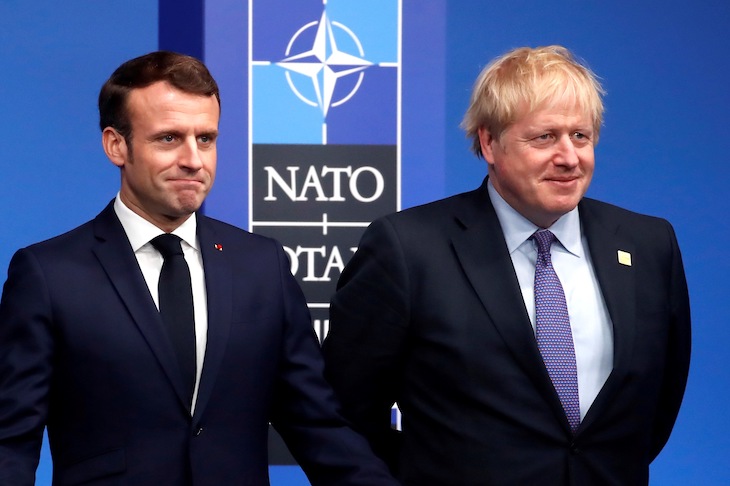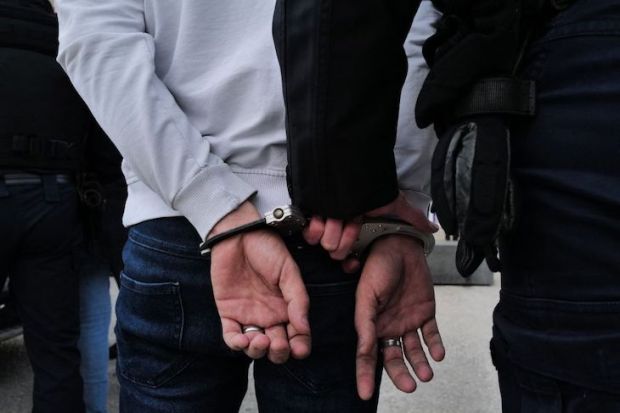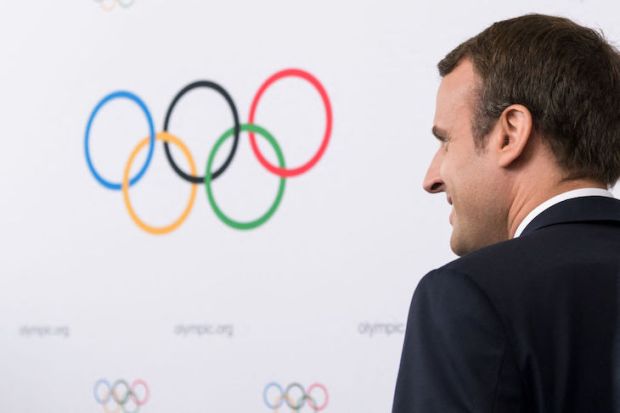Remember when Boris Johnson met Emmanuel Macron for the first time as Prime Minister? It was in August and, as the Guardian made clear to its readers, it was the French president calling the shots. The newspaper illustrated its point with a photograph of the two leaders at their lecterns, the French president looking statesmanlike and the British Prime Minister with a hand clasped to his head.

Boris Johnson and Emmanuel Macron on the Guardian website
How different the fortunes of the leaders are four months on. Johnson has just been returned to power with a ‘stonking’ majority, as impressive as the one Macron’s centrist LREM (La République En Marche) enjoyed in the 2017 French parliamentary elections. But there is a crucial difference: Johnson leads a united Conservative party whereas Macron’s nascent LREM was composed of men and women from the left and right, which in part explains why 11 of his 314 MPs have quit the party in the last two and a half years. The most recent to leave, Jennifer de Temmerman, walked away last month in protest at what she considered the stringency of the government’s immigration policy.
But the dissension in the ranks of the LREM is nothing compared to the divisions across the country in general. Last winter it was the Yellow Vest protests that rattled the government, and this year nationwide strikes against proposed pension reforms have ground France to a halt. For nearly three weeks the majority of the Paris transport network has been shut, and in recent days the far-left CGT (Confédération générale du travail) union has temporarily cut the power of hundreds of thousands of homes across the country.
More blackouts are promised by the union if the government doesn’t scrap its pension plans and in another sign of how radical the strikers are becoming, sports minister Roxana Maracineanu was recently forced to beat a hasty retreat from a football stadium after an angry mob shouted abuse and showered her with drink.
Attacks against politicians are now commonplace in France. A report in Le Figaro in August stated that 121 politicians – one fifth of the parliament – had been targeted since Macron came to power, a figure that the historian Jean Garrigues said was ‘a phenomenon unprecedented since the war in Algeria.’
The majority of the attacks involve damage to property. Most are directed against the ruling LREM party. But there is a growing fear in France that as anger increases, violence could switch from property to people.
It it does it will be following a familiar pattern. The thread of civilised society in France is slowly being unpicked as the endgame of identity politics is played out on the streets.
Last month, 30 extreme-left activists ransacked a bar in Rennes, overturning tables and attacking customers; this month, while in the last week far-right thugs have attacked students in Strasbourg and Lyon.
Lille university was the scene of an ugly incident in November when an anti-capitalist mob invaded the auditorium where former president François Hollande was scheduled to speak and destroyed hundreds of his books. The same ideology was responsible for an attack on a nativity play in Toulouse last weekend when 50 anti-capitalists terrorised a group of children in the name of upholding France’s secularism.
As to the identity of those who desecrated a Jewish cemetery at the start of this month, daubing scores of headstones with Swastikas, that could be the far-right, far-left or Islamist extremists. Such is the prevalence of anti-Semitism in France.
Then there’s the daily intimidation farmers face from animal rights extremists; this year there have been 1,000 incidents logged – from arson to graffiti saying ‘murderers’ daubed on walls – prompting the police to offer security training to farmers.
And, of course, the threat from Islamic extremism remains an ever present danger, with a new report detailing the cases of 30 French soldiers who have deserted to Jihadist groups in recent years.
Macron has two and a half years to heal the divisions, but optimism doesn’t abound in France that he will succeed. The country is depressed, in every sense of the word, and its people weary, cynical and rebellious.
In fact France is beginning to resemble the country that Michel Houellebecq depicted in his dystopian novel, Submission, a book that was scorned by the French intelligentsia when it was published in January 2015. They mocked the author’s bleak vision of a France on the cusp of a civil war in the lead up to the 2022 presidential election – but no one is laughing at Houellebecq now.
Got something to add? Join the discussion and comment below.
Get 10 issues for just $10
Subscribe to The Spectator Australia today for the next 10 magazine issues, plus full online access, for just $10.





















Comments
Don't miss out
Join the conversation with other Spectator Australia readers. Subscribe to leave a comment.
SUBSCRIBEAlready a subscriber? Log in